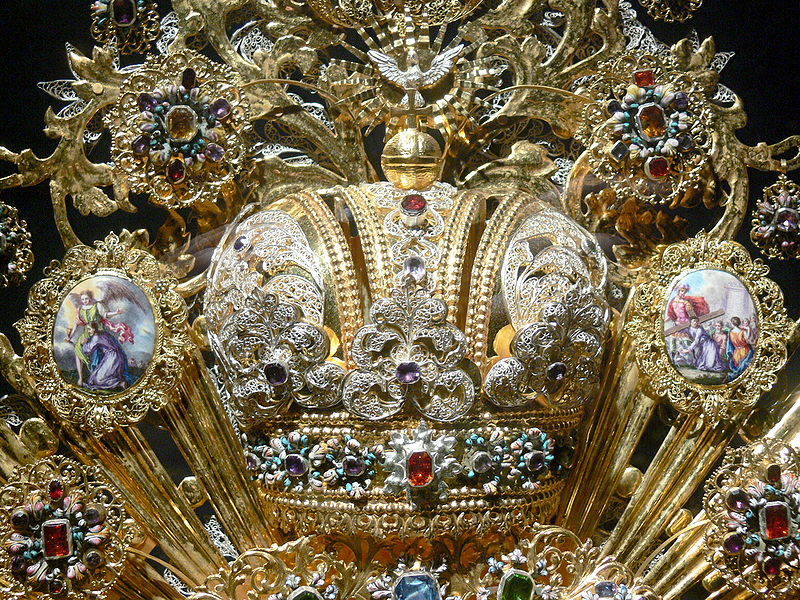Atlas Shrugged, part II, chapter I
After Hank chases off the government crony who wants to buy his metal, the chapter shifts to a series of vignettes with him and Dagny. They’re arranging increasingly frequent liaisons whenever Hank is in New York, and as the looter-run economy contracts around them, Dagny looks forward to her time with him more and more:
The only pride of her workday was not that it had been lived, but that it had been survived. It was wrong, she thought, it was viciously wrong that one should ever be forced to say that about any hour of one’s life.
If I didn’t know better, I’d think that Ayn Rand had just made an argument for living-wage laws. Of course, she would’ve supported no such thing – but it really is remarkable, the childlike naivete with which she assumes benevolence on the part of employers. For all that she cheers on laissez-faire capitalism, it never even crosses her mind that there could be such a category as the working poor: people whose employers exploit them as viciously as possible while paying as little as possible – often bare subsistence wages, and sometimes not even that. It’s of a piece with her belief that if all government regulation and protection of the economy ceases, everything will just work out, somehow.
As their affair continues, Hank starts buying Dagny extravagant gifts. He’s still the same rapey, controlling, possessive Hank, though, acting as though he owns her body just because he buys her things and treating her as if “consent is not required”:
She thought of the evening last winter when he came in, took a small package from his pocket and held it out to her, saying, “I want you to have it.” She opened it and stared in incredulous bewilderment at a pendant made of a single pear-shaped ruby that spurted a violent fire on the white satin of the jeweler’s box….
He led her to the bedroom, he took off her clothes, without a word, in the manner of an owner undressing a person whose consent is not required. He clasped the pendant on her shoulders. She stood naked, the stone between her breasts, like a sparkling drop of blood.
…”Do you think a man should give jewelry to his mistress for any purpose but his own pleasure?” he asked. “This is the way I want you to wear it. Only for me. I like to look at it. It’s beautiful.”
On the evening of a blizzard, she came home to find an enormous spread of tropical flowers standing in her living room against the dark glass of windows battered by snowflakes. They were stems of Hawaiian Torch Ginger, three feet tall; their large heads were cones of petals that had the sensual texture of soft leather and the color of blood. “I saw them in a florist’s window,” he told her when he came, that night. “I liked seeing them through a blizzard. But there’s nothing as wasted as an object in a public window.”

Just another mooching socialist who wants to put expensive things in museums.
It’s a waste of beautiful flowers to put them in a public window, where just anyone can enjoy looking at them! Instead, like all beautiful and valuable things, they should be sold off to the highest bidder and shut up in a private, climate-controlled vault, where only those with the proper level of wealth can gaze pleasurably upon them. As for the poor, their lives should be bleak, dreary and grey, because capitalism. If they don’t like that, well, they should have chosen to be born into a wealthy and privileged family instead.
“I like giving things to you,” he said, “because you don’t need them.”
“No?”
“And it’s not that I want you to have them. I want you to have them from me.”
“That is the way I do need them, Hank. From you.”
“Do you understand that it’s nothing but vicious self-indulgence on my part? I’m not doing it for your pleasure, but for mine.”
“Hank!” The cry was involuntary; it held amusement, despair, indignation and pity. “If you’d given me those things just for my pleasure, not yours, I would have thrown them in your face.”
“Yes… Yes, then you would – and should.”
This is one of the strangest outgrowths of Rand’s all-selfishness-all-the-time moral philosophy: the idea that giving gifts to someone for their enjoyment is evil. To do that would be an immoral sacrifice: giving up something you value more (your money) for something you value less (the happiness of a person who isn’t yourself). Instead, you should only give gifts to others for your enjoyment, which is presumably the enjoyment of knowing you’re a rich, high-status person who can buy expensive presents for your friends and lovers.
Hank sneers at the idea that “enjoyment of material pleasures is evil”, calling it “vicious” and a “perversion”. I can only assume his private security threw out the protesters telling him this halfway through their speech, because I’ve never heard anyone say that material things themselves are evil. The real criticism is of people who value material pleasures more than the lives of human beings – as in Peter Singer’s famous thought experiment about a drowning child. (One gets the impression that no self-respecting Randian hero would rescue the child if it got his nice shoes muddy.)
The precise way to measure the inequality between Hank and Dagny and the people starving in the snow outside is a statistical measure called the Gini coefficient. A society with a Gini coefficient of 0 has perfect equality (everyone has the same income), while a Gini value of 1 means perfect inequality (one person controls all income, everyone else has nothing). Compared to most Western countries, the United States has one of the highest Gini values, and is by far the highest when inherited wealth and capital gains are taken into account. What’s more, this is a recent development: American inequality has soared since the late 1970s (note: page has sound), approaching levels not seen since the Great Depression.
From a Randian perspective, of course, the suffering and deprivation of the poor is beneath consideration. But even from a coldly logical, capitalist perspective, severe inequality is a bad thing. A highly unequal society is bad for meritocracy and class mobility: it’s harder for poor people, however talented, to advance when education and enrichment are available only to the children of the already wealthy. A highly unequal society holds back economic growth: corporations can’t profit and won’t invest if their customers have no money to spend. And a highly unequal society leads to panics and crashes by fueling debt bubbles as people borrow in an attempt to keep from falling behind.
In a society where everyone’s basic needs were provided for, I doubt anyone would begrudge the rich their luxuries. There’s no question that we could design such a society if we wanted to: we’re more than wealthy enough, as a civilization, to see that no one falls below that baseline. But instead, what we’ve designed is a society where some have fur coats and lavish dinners while others go without food and medicine, and we have writers like Ayn Rand to thank for it.
Image credit: Wolfgang Sauber, released under CC BY-SA 1.0 license
Other posts in this series:
